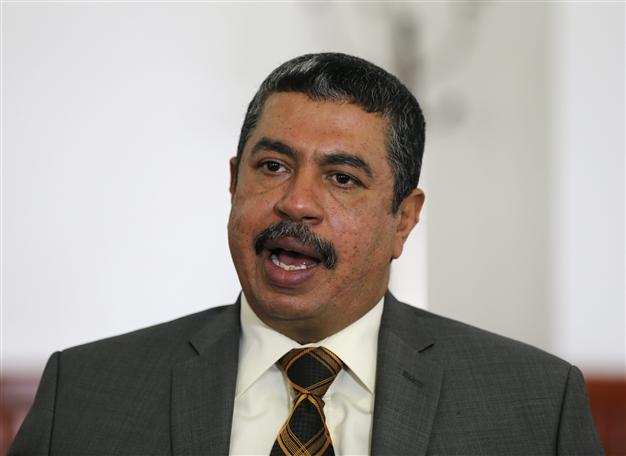Yemen names new PM in fresh bid to end crisis: state media
SANAA - Agence France-Presse

Yemen's envoy to the United Nations Khalid Bahah talks during an interview with Reuters in Sanaa in this May 21, 2014 file photo. REUTERS Photo
President Abdrabuh Mansur Hadi Oct. 13 named Yemen's envoy to the UN Khalid Bahah as his new premier, his second bid this month to end the country's political crisis, state news agency Saba said.
"After consultations over several nominees, all advisors nominated Khalid Mahfoudh Bahah," Saba reported.
Hadi's move came after Ahmed Awad bin Mubarak rejected his nomination only 24 hours after he was appointed on Tuesday following strong opposition from Shiite rebels.
The rebels, known as Huthis from the name of their leading family, stormed into Sanaa in a lightning offensive on September 21 and proceeded to establish a strong military presence, mounting patrols and manning checkpoints.
The nomination of a neutral prime minister is stipulated in a UN-sponsored ceasefire deal that also provides for the withdrawal of the rebels from Sanaa once the premier has been named, their disarmament and revitalisation of the political transition.
The insurgents have refused to withdraw from the city despite the deal to give them more influence with the Sunni-dominated government.
Bahah is from the southeastern Hadramawt province. He studied adminstration and finance in his home country as well as India.
He was Yemen's ambassador in Canada, and later the impoverished country's minister of oil and minerals, before he became its envoy at the United Nations in August.
Yemen has been wracked by political turmoil since a 2011 uprising forced veteran strongman Ali Abdullah Saleh from office, with rebels and militants battling to exploit a power vacuum.
On Thursday, suicide attacks killed 47 people in the capital Sanaa and 20 soldiers in Hadramawt province.
The Sanaa bombing targeted a gathering of supporters of Shiite rebels who are demanding a greater role in decision making as well as political and economic reform and was claimed by Al-Qaeda in the Arabian Peninsula.
AQAP is considered by the United States to be the deadliest branch of the extremist network.
The Huthis, who complain of marginalisation by Sanaa, are concentrated in the mostly Shiite northern highlands in otherwise Sunni-majority Yemen.
